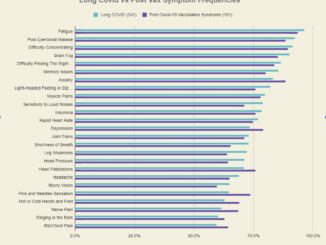
Long COVID
Long Vax = Long Covid ?
In mid-2023, the first step towards recognition of the Post Vaccination symptoms as a new phenomena was this article in Science News. https://www.science.org/content/article/rare-link-between-coronavirus-vaccines-and-long-covid-illness-starts-gain-acceptance Science News is a publication associated with the prestigous scientific journal Science. […]

